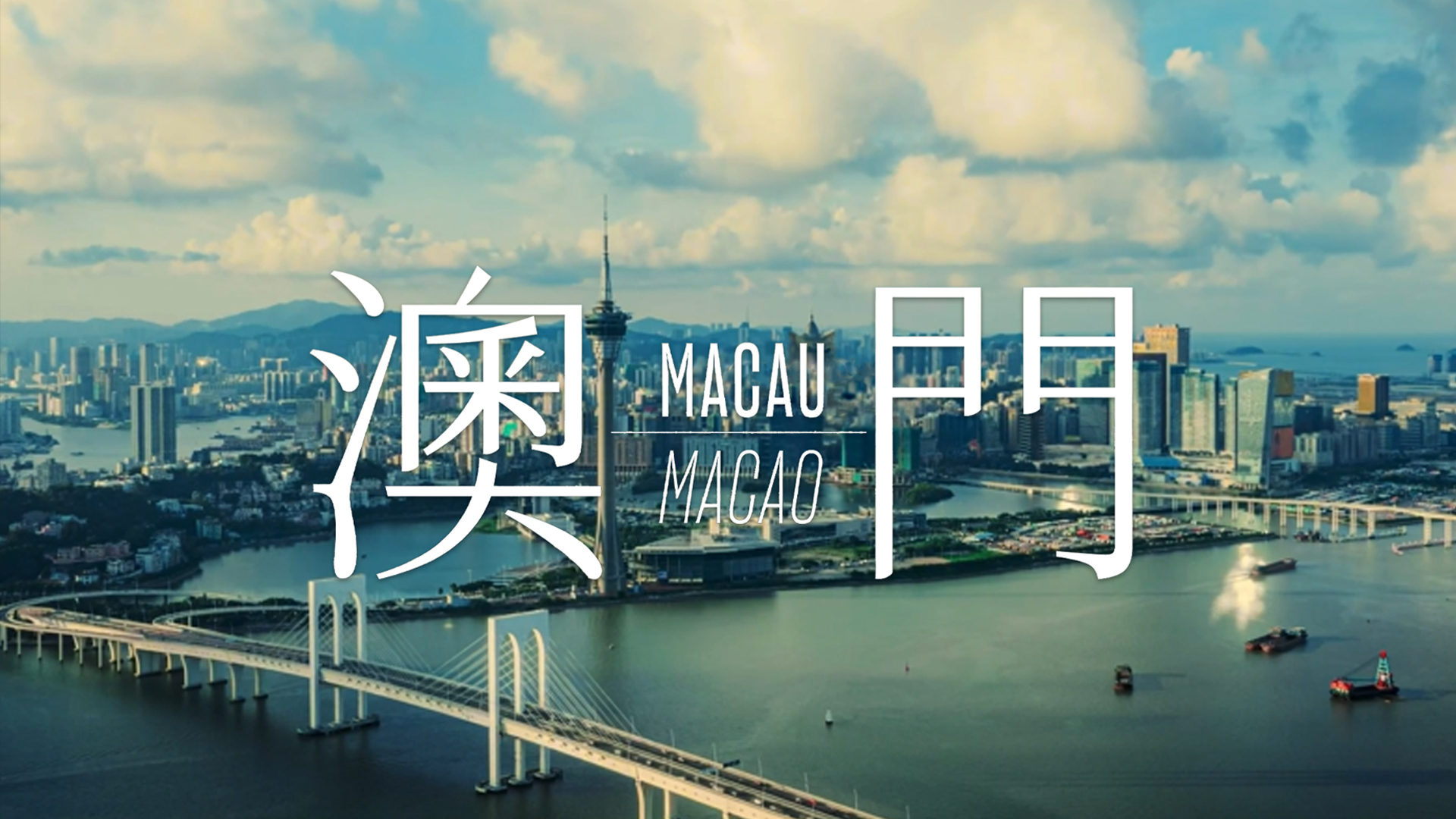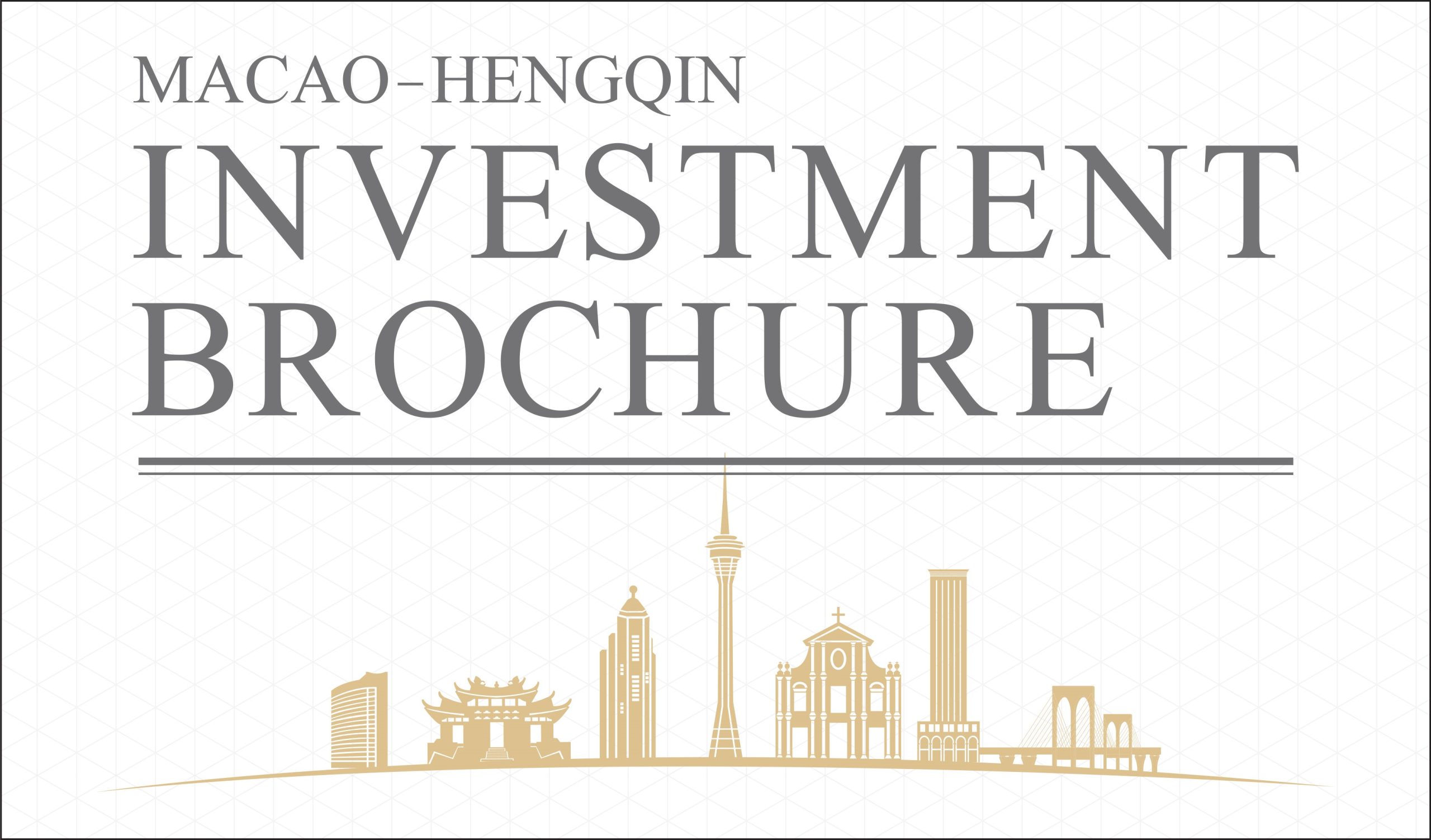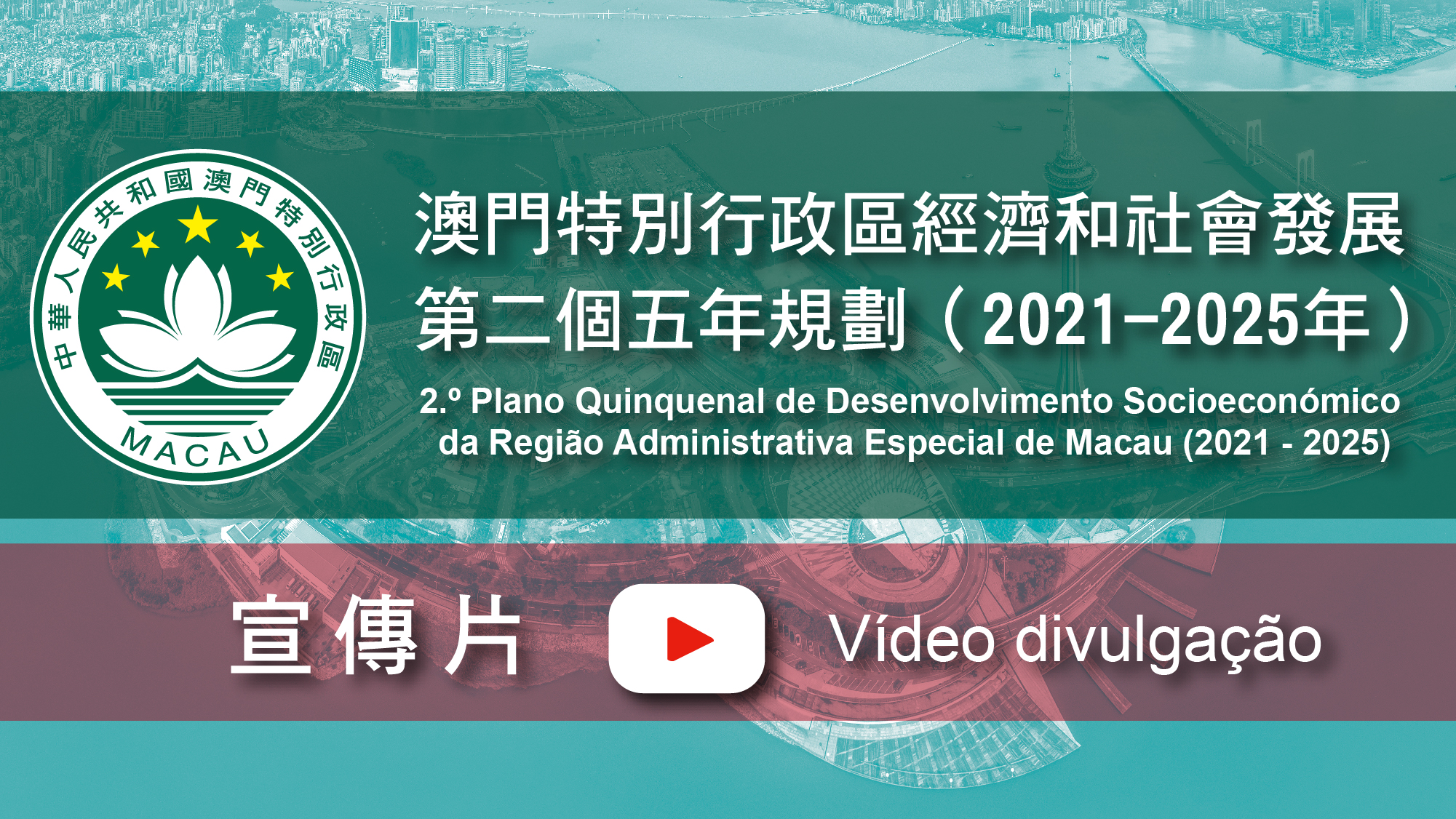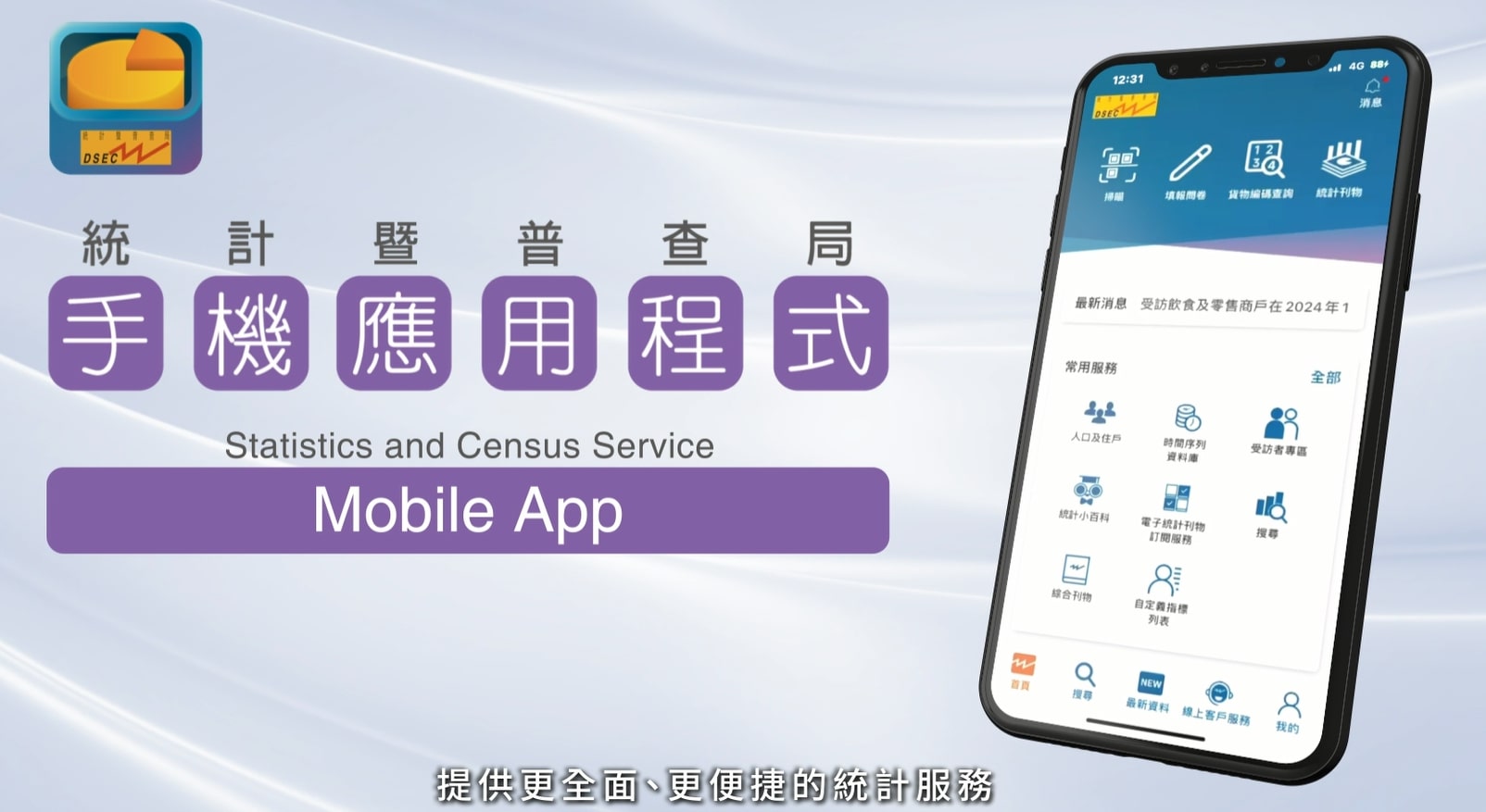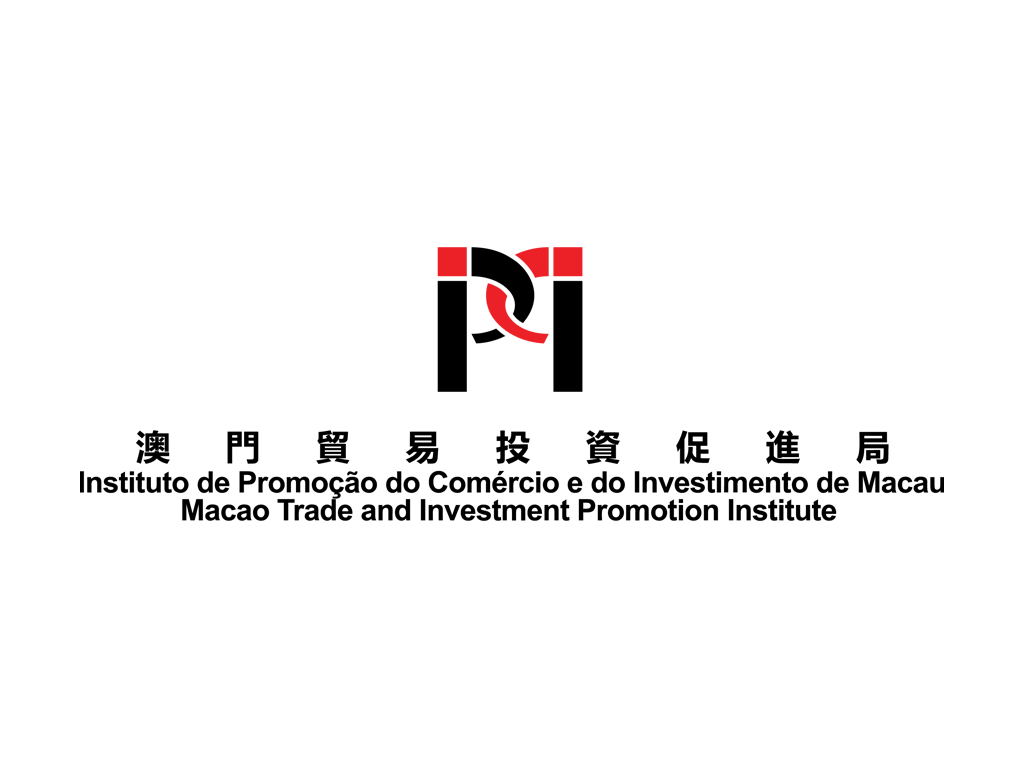Search Issues
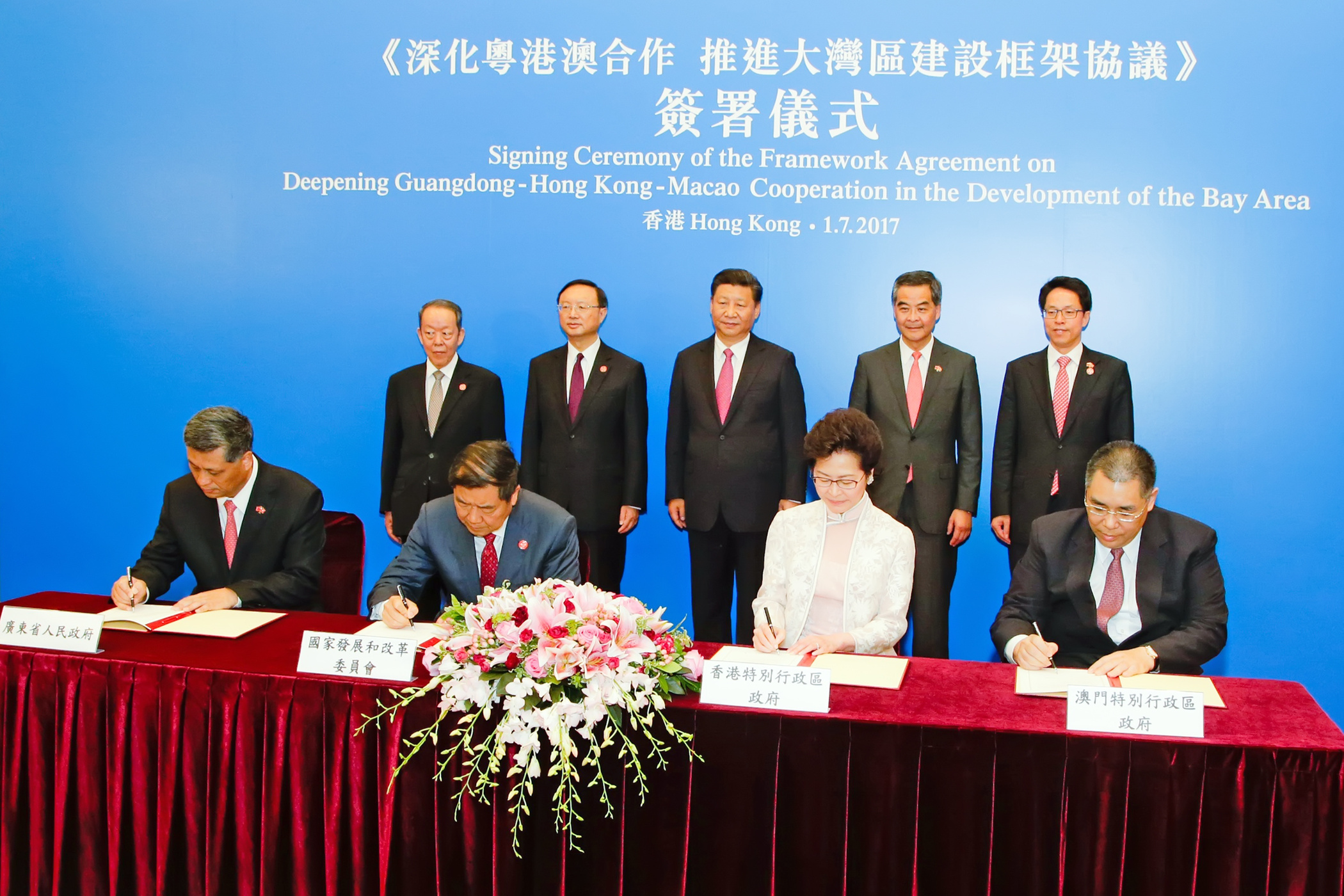
The Framework Agreement on Deepening Guangdong-Hong Kong-Macao Co-operation in the Development of the Bay Area was signed on 1 July 2017
Now that it has officially begun, the initiative to develop the Guangdong-Hong Kong-Macao Bay Area into a metropolitan area has become one of the main thrusts of regional co-operation efforts by Macao.
Apart from the effort of the Macao SAR Government in promoting the initiative, society must also play an active role and assist Macao to seize the opportunities brought about by the national development.
Dominic Sio Chi Wai, President of the Macau Development Strategy Research Centre, believes that Macao ought to utilise its advantages when taking part in this national initiative, including its role as a World Centre of Tourism and Leisure and as a Commercial and Trade Co-operation Service Platform between China and Portuguese-speaking Countries. Mr Sio thinks that Macao, by being a “specific connector”, can create the conditions for its own development and create fresh opportunities for economic growth.
Mr Sio points out that what differentiates the Guangdong-Hong Kong-Macao Bay Area from other bay areas in China is that the former includes two Special Administrative Regions – Macao and Hong Kong.
“Macao and Hong Kong are both free ports, each having either low tax rates or even tax exemptions. This is the greatest feature of the Guangdong-Hong Kong-Macao Bay Area, an advantage that other bay areas in China do not possess,” he says.
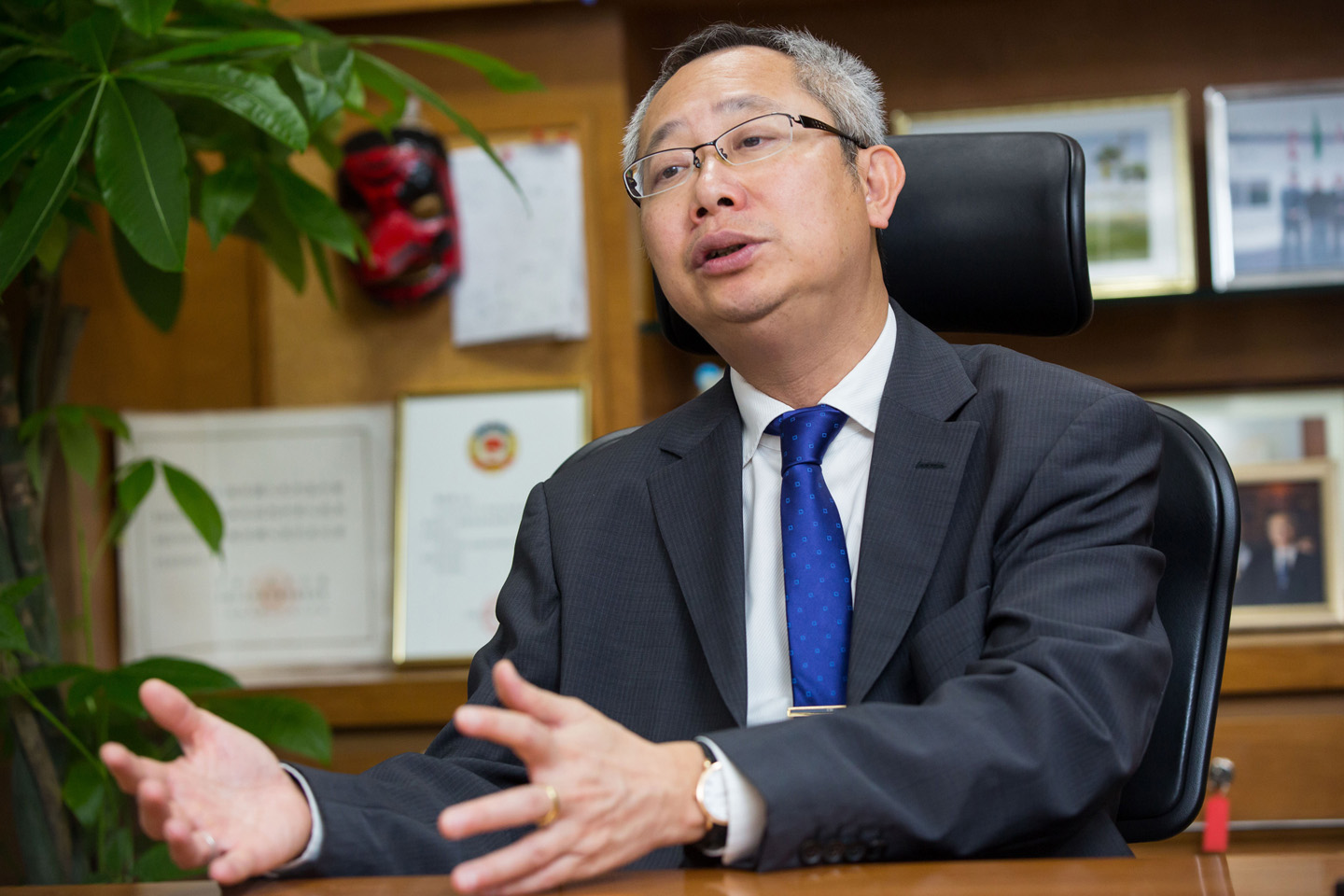
President of the Macau Development Strategy Research Centre, Dominic Sio Chi Wai
Innovative co-operation
At a ceremony witnessed by President Xi Jinping, representatives of the National Development and Reform Commission, the People’s Government of Guangdong Province, the Hong Kong SAR Government and the Macao SAR Government signed the Framework Agreement on Deepening Guangdong-Hong Kong-Macao Co-operation in the Development of the Bay Area (the Framework Agreement) on 1 July 2017 in Hong Kong. With the support of the Central Government, the governments of Guangdong, Hong Kong and Macao will renovate and improve their mechanism for co-operation and establish a co-operative relationship that is mutually complementary. The agreement is an important milestone in putting into action the development plan for the Guangdong-Hong Kong-Macao Bay Area.
As Guangdong, Hong Kong and Macao have a long history of co-operation, several academics and other authorities on the matter proposed the establishment of a city cluster in the area. Their idea has gradually taken shape in recent years. The development of the Guangdong-Hong Kong-Macao Bay Area was first alluded to in a Central Government official document in 2015, when the “Vision and Actions on Jointly Building the Silk Road Economic Belt and the 21st-Century Maritime Silk Road” document outlined the plan to create the Guangdong-Hong Kong-Macao Bay Area through the pursuit of the “Belt and Road” initiative. The 13th Five-Year Plan for China, published in 2016, provides for Beijing’s support to enable “Hong Kong and Macao to play an important role in promoting co-operation in the Pan Pearl River Delta region and advance the development of the Guangdong-Hong Kong-Macao Bay Area and major trans-provincial co-operation platforms”.
The 2017 Central Government Work Report, approved by the National People’s Congress in March, confirms that the Central Government will make a plan for the development of a city cluster in the Guangdong-Hong Kong-Macao Bay Area, to include the special administrative regions of Macao and Hong Kong, and the Guangdong cities of Dongguan, Foshan, Guangzhou, Huizhou, Jiangmen, Shenzhen, Zhaoqing, Zhongshan and Zhuhai.
The platform role
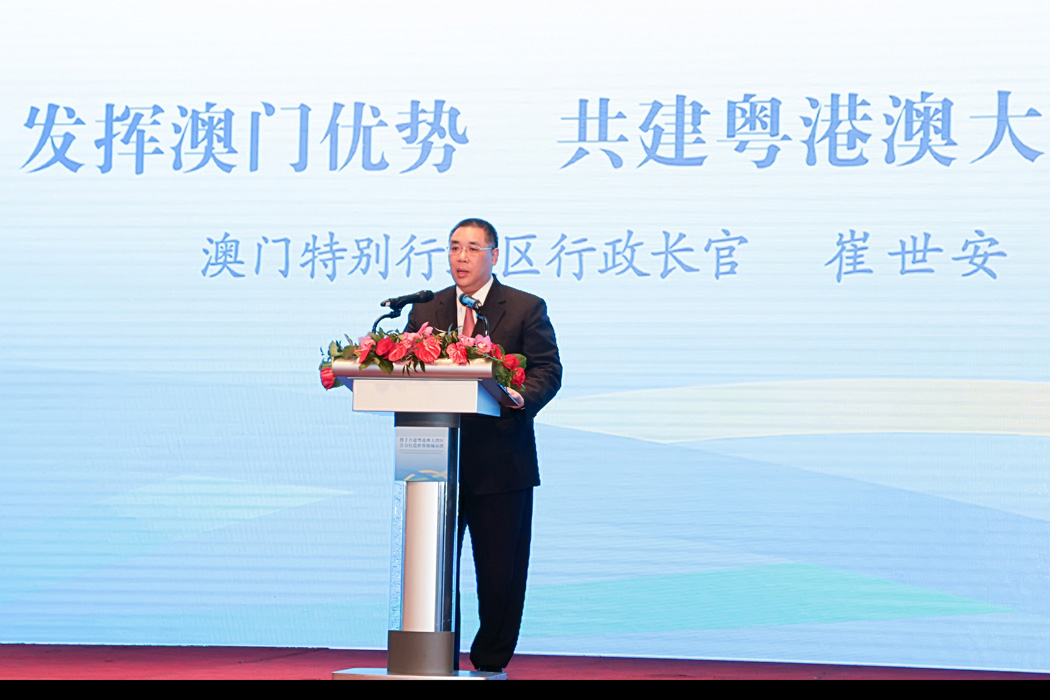
Macao Chief Executive, Chui Sai On, delivers a speech during a Jointly Promote the Development of a World‑class City Cluster in the Guangdong-Hong Kong-Macao Bay Area Forum in Hong Kong
After the signing of the Framework Agreement, Macao Chief Executive Chui Sai On attended the Jointly Promote the Development of a World-class City Cluster in the Guangdong-Hong Kong-Macao Bay Area Forum. The Chief Executive told the forum that Guangdong, Hong Kong and Macao each had its own advantages and had together laid a solid foundation for co-operation. He said Guangdong, Hong Kong and Macao maintained close and friendly ties, and that their co-operation had practical, fruitful outcomes. He additionally stated the elevation of the Guangdong-Hong Kong-Macao Bay Area initiative from a civic initiative to a national strategy gave flesh to the co-operative tradition of the three places, and laid out the path towards their future development.
From an international perspective, Mr Chui said, the Guangdong-Hong Kong-Macao Bay Area was important for supporting the pursuit of the “Belt and Road” initiative and promoting the participation of Mainland China in international co-operative efforts at a high level, leading to the opening-up of the country in various fields. From a national perspective, he said, the Guangdong-Hong Kong-Macao Bay Area was important for strengthening the application of the “One Country, Two Systems” principle and for adding new driving forces to propel development between Guangdong, Hong Kong and Macao.
The Chief Executive said the city had four main tasks in the joint development of the Guangdong-Hong Kong-Macao Bay Area. First, he said, the city should actively enhance its communication with the Central People’s Government so it could be closely integrated with the national development effort, under the guidance of the Central People’s Government. Second, Macao should spur on the improvement of its infrastructure and the application and co-ordination of its “One Centre, One Platform” policies, and facilitate the moderate diversification of its economy to complement the development of the Guangdong-Hong Kong-Macao Bay Area. Third, Macao will deepen integrated development with Guangdong and Hong Kong. The city will uphold the principles of complementarity of edges and mutually beneficial co-operation, implement “early and pilot measures”, encourage innovative development. Fourth, Macao should make good use of its resources, taking into consideration the markets at home and abroad, mobilise various sectors of the community to participate in the initiative and make full use of local and foreign resources.
Mr Sio says he believes that Macao can play the role of a “specific connector” in its participation in the Guangdong-Hong Kong-Macao Bay Area. This, he says, is closely associated with Macao’s plan to develop as a Commercial and Trade Co-operation Service Platform between China and Portuguese-speaking Countries.
“A so-called ‘specific connector’ is a role Macao can play between China and Portuguese-speaking Countries. There are many established private enterprises in Mainland China that need new markets in order to expand, and the markets of many Portuguese-speaking Countries are suitable for that,” says Mr Sio. “Macao can attract these private enterprises to set up headquarters here and explore the Portuguese-speaking Countries’ markets. Moreover, Macao has abundant capital resources and the private enterprises from Mainland China can acquire funding and grow here,” he explains.
Mr Sio believes that Macao can develop its featured financial sector via participation in the development of the Guangdong-Hong Kong-Macao Bay Area. With the support of the Central People’s Government regarding development of Macao as a renminbi clearing centre, and the special features of Macao in terms of its taxation system and legal system, Mr Sio thinks Macao can become a financial and trading bridge between Mainland Chinese private enterprises and Portuguese-speaking Countries.
Public support
Mr Sio advises that governments in the Guangdong-Hong Kong-Macao Bay Area, with the support of the Central People’s Government, should introduce policies that directly benefit their residents, and thereby garner local support for this national initiative. Such policies might include the implementation of a boundary crossing system that is more convenient for residents and the joint construction of other facilities that are closely related to residents’ needs, he adds. These policies, he believes, could foster residents’ support and acceptance of this regional co-operation initiative.
“In terms of regional co-operation, what is important is the support and recognition of the residents. They should understand the benefits brought by such co-operation,” he says.
In order to gather community opinion regarding the Guangdong-Hong Kong-Macao Bay Area plan, the Macao SAR Government held 16-day consultations with the public in June 2017. Over 120 associations and organisations made suggestions. The Government received 126 opinions expressed by members of the public via letters, comments posted on websites, emails and telephone calls. The Government said the public favoured Macao taking part in the Guangdong-Hong Kong-Macao Bay Area endeavour, and supported the city’s involvement in those tasks naturally associated with the initiative, as identified by the SAR Government.
The Macao Government says the development of the Guangdong-Hong Kong-Macao Bay Area would enable Macao to strengthen its position as a World Centre of Tourism and Leisure and a Commercial and Trade Co-Operation Platform between China and Portuguese-speaking Countries, as well as the development of a networking and co-operation base focusing on Chinese culture and the co-existence of a variety of cultures.
The Macao authorities have highlighted eight aspects of the part Macao could play in the development of the Guangdong-Hong Kong-Macao Bay Area. These aspects include promoting cultural and people-to-people exchanges; supporting innovation, entrepreneurship and youth employment while giving greater scope for the development of small and medium-size enterprises; increasing exchanges and strengthening connections in the region by building infrastructure; and promoting equal treatment in the region of Macao residents and Mainland Chinese.
The effort to develop the Guangdong-Hong Kong-Macao Bay Area was the most important item on the agendas of meetings Macao officials held the 2017 Guangzhou-Macao Co-operation Task Force Meeting and the 2017 Zhuhai-Macao Co-operation Meeting in July 2017 with representatives of Guangzhou and Zhuhai. Macao and Guangzhou agreed to increase collaboration in finance, human resources and tourism industry vocational training, and representatives of the Macao Trade and Investment Promotion Institute and the Guangzhou Municipal Commission of Commerce signed an agreement to co-operate in developing the meetings, incentives, conventions and exhibitions industry. Macao and Zhuhai agreed to increase co-operation and innovation in the finance sector, to improve the infrastructure and customs procedures at the crossings on their common border to make them the best possible and to increase their co-operation in promoting entrepreneurship by young people and job creation.
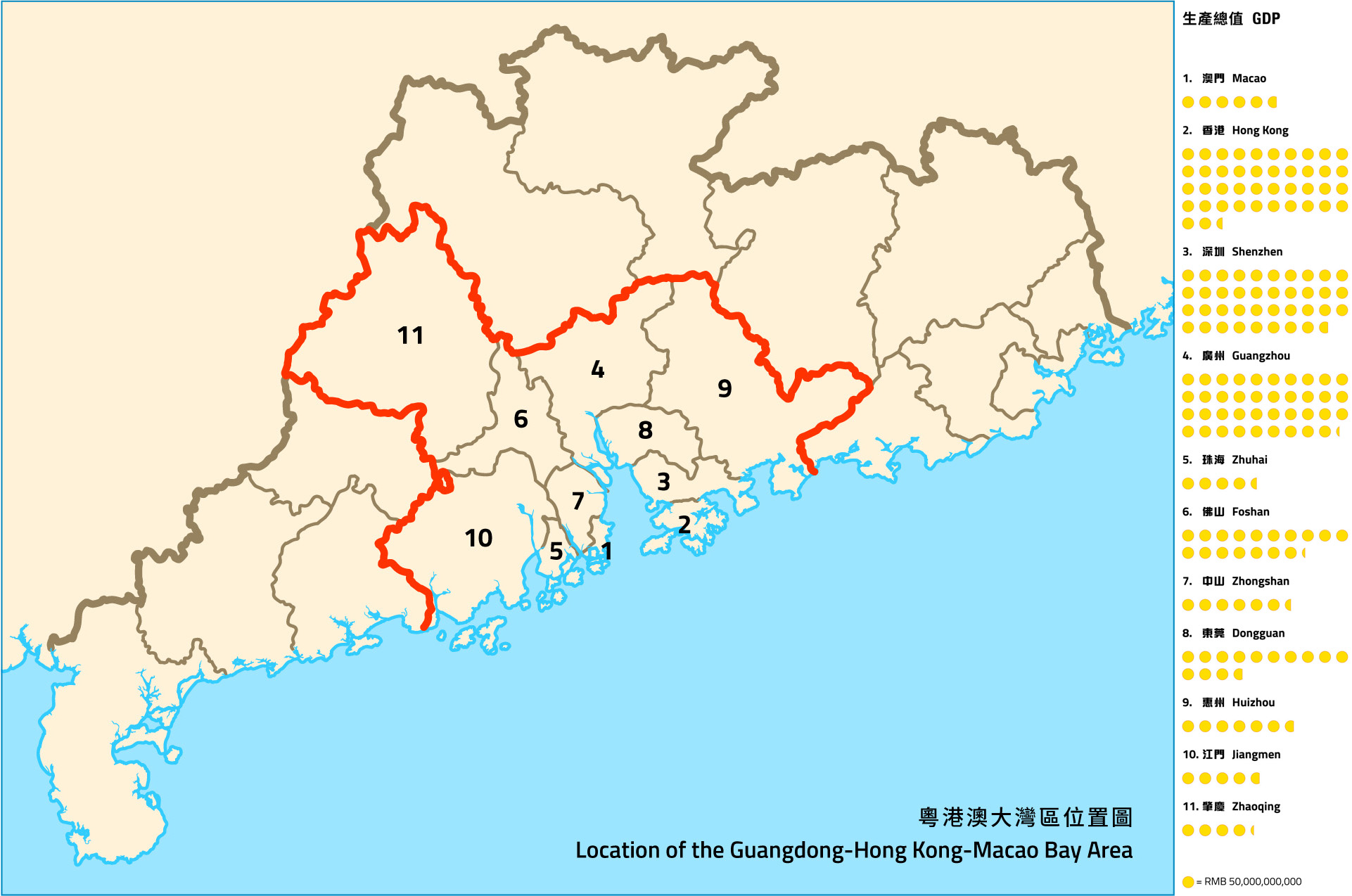
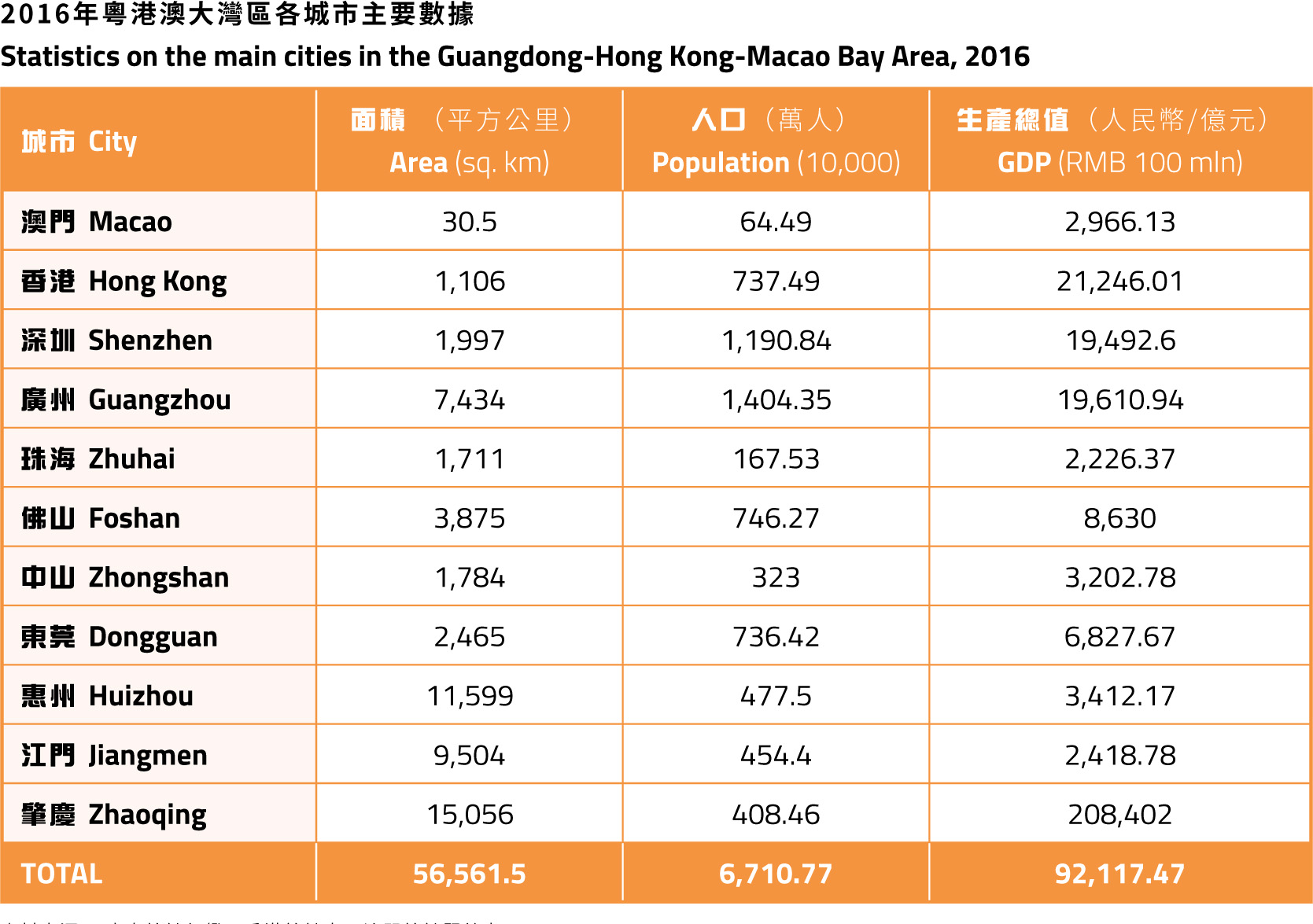
Sources: Statistical Yearbook of Guangdong; Hong Kong Census and Statistics Department; Macao Statistics and Census Service



